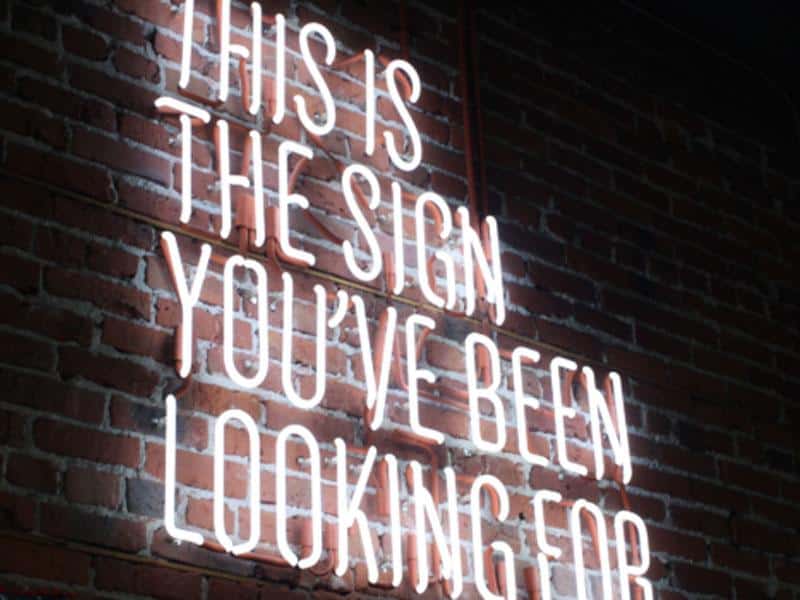Raise your hand if you’ve ever said “I wish I had more balance in my life.”
Lots of hands out there, right? So many of us seem to think there’s some magical formula, and that if everything in our lives was in the right proportions—work, family, social life, etc.—then bam, we’d be happy. Often, when we talk about balance it’s because we’re at a decision point: We want to switch jobs or professions, or end a relationship or friendship. Maybe we’re thinking about moving, or we’re reconsidering the way we think about our faith.
I’ve made decisions about all of these things at one time or another. But what I’ve learned is that getting to a place of joyful fulfillment isn’t really about balance. It’s about ALIGNMENT.
Alignment is about clarifying who you are—your values and priorities—and removing the noise and distraction of other’s expectations, rather than trying to achieve some unattainable “balance” based on society’s norms and values. It’s finding the flow and letting go of the things that cause friction. It’s seeking an order to life rather than trying to be everywhere, doing everything for everyone.
It’s exactly what I had to do about eight years ago, when I made the decision to move back to my hometown of Baltimore after 32 years in Boston. I told this story when I spoke at Light City last week in Baltimore, so it’s been on my mind a lot lately.
Boston was where I started my career and got married (and divorced) and had my son. I had a supportive community of friends and a house that I loved. It was a good life; I had no complaints. But there was an internal conflict that nagged at me, steadily harder and louder as the years passed. There I was in one of the safest cities in America, yet much of my family were back in Baltimore, the city vying for the title of most dangerous. My son was attending great public and private schools, but when I visited home, my nieces and nephews were telling me their schools didn’t have books. I had a thriving business focused on trying to make the world a better place while many of my relatives were struggling to find meaningful employment. Meanwhile, my parents were getting older. My sister had come back to Baltimore and was performing the herculean task of supporting the family, but being the “phoning it in” daughter didn’t sit right with me. None of it did.
Ever since I was very young, I’ve been a truth and justice seeker, a peacemaker. I care deeply about family and community. But I’d reached a point where I realized that my life, where and how I was living it, while lovely, wasn’t fully aligned with those values.
I think so often this is the real issue when it comes to why we don’t feel content in our lives, feel harried and out of control, or like something is missing. There are people, behaviors, relationships, choices and habits that, if we’re honest with ourselves, we know don’t correlate with who we say we are or want to be.
I’m not going to lie—achieving alignment isn’t easy, and it’s a process. I’ve been on a journey of aligning my life for years. But here are a few things that have helped me along the way. I hope they help you, too.
1. Believe that it’s possible. A lot of people cling to being unhappy. Their lives are hectic, they feel overwhelmed and miserable, but they believe there’s nothing they can do to change it. Some even wear it as a badge of honor. Others won’t take the time to examine their lives because they’re so busy keeping balls in the air. What they’re missing is faith that they can change things. I don’t necessarily mean the religious kind of faith (though it was for me). I mean believing that some kind of life other than the one you’re currently living is possible. Without that belief, you won’t have the courage to drop some of the balls and consider a new way.
2. Know that there’s no one way to get there. So many of us—especially women, brought up to be people pleasers—buy into the belief that there are only a set number of ways to create a life. We think we have to follow a certain script or fit into some mold. But the truth is, there’s no ideal way to build a career or family or anything else. I love and highly recommend the book Composing a Life by Mary Catherine Bateson. It taught me that I’m the best author of my own life; nobody else can write it for me. So I need to take responsibility for creating the life that makes sense for me.
3. Get therapy. I’m serious! There’s still a stigma around therapy, especially in communities of color, but I wish that weren’t the case. We all need help to heal and to remember who we are and what truly matters to us. It’s so much easier to step back and take an objective look at your life when you have a paid professional as a sounding board—not a friend or partner or family member, all of whom come with their own assumptions and agendas. I realize that therapy isn’t financially accessible to everyone. But if you can find a way, go for it, and don’t let shame deter you.
4. Have Courage. This is maybe the most important thing of all: Decide what it is you really care about and don’t be afraid of it. Early in my career, when I wanted to make a major shift to better align my life, I spent a lot of time talking with a good (and very patient!) friend about the difficult choices I saw before me. I think the words “I don’t know what to do” came out of my mouth about every five minutes in our conversations together. At one point, she looked at me and said, “Yes, you know exactly what to do; you just don’t want to do it.” I had all kinds of reasons why I couldn’t/shouldn’t leave Boston —money, other’s expectations, fear, loss of status, lost time and investment (“I can’t possibly sell my beautiful house for so little, with all the love and money I put into it!”). But in the end, I realized these weren’t so much reasons as they were excuses for not doing what, in my heart of hearts, I knew was the right move.
5. Prepare to be surprised. When I was considering whether to leave Boston, I remember thinking: “How can I live, without my colleagues, friends, the cultural events, my church, my son, all of whom I love (etc. etc.)?” But when you move into alignment, joy and satisfaction come from places you may least expect, and that you could never have anticipated. The life I lead in Baltimore is simpler, more coordinated, connected and therefore more efficient than the one I lived in Boston, and yet it’s fuller, more well-rounded, and significant. I never realized how much I’d enjoy being able to see my parents almost every weekend, or eat dinner with my nieces and nephews. My work feels more elevated because it’s integrated with, not separated from, the social justice work I’m doing in Baltimore. Everything flows together, in concert with who I am and where I’m going. I’ve never been happier.
I’d hate to give the impression that my life is perfect. It’s not. I’ve got stresses and struggles and a few incongruences I still wrestle with. But alignment isn’t about perfection; it’s about direction. When I step back and look at the big picture, I see that the elements of my life are lined up with what I believe and what matters most to me. Could this change, as my priorities or goals shift? Could conflict and friction creep back in? Absolutely. And if that happens, I hope I’ll be courageous enough to make the adjustments that allow me to be the best version of me I can be.
My parting advice: Ask yourself which of the balls you’re juggling are making it hard for you to be your best self—then let them go and look for the flow.
So now it’s your turn. Hit me on Facebook, Twitter or Instagram and let me know about the big decision points in your life, and how you approached them. Do you feel like your life is in alignment? If not, how could you get it there?


